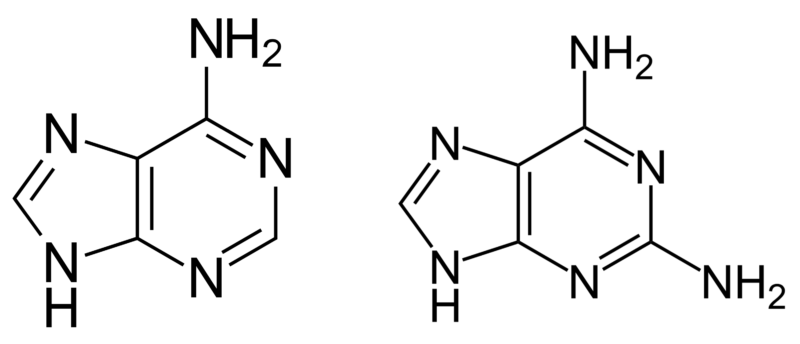
Enlarge / Normal DNA uses adenine (left), while some viruses use diaminopurine instead.
DNA is the genetic material used by every living organism. But, in a few edge cases, the four bases of DNA—adenine, thymidine, cytosine, and guanine—undergo chemical modifications. And in viruses, things are far more flexible, with many using RNA instead of DNA as their genetic material. In all these cases, the base pairing in the genetic material takes place according to the rules that James Watson and Francis Crick first proposed.
Until now, there was a single exception, a virus that infects bacteria and uses its own, seemingly unique base. But researchers have finally looked in more detail, and they've discovered that this "Z-DNA" seems to be used by dozens of viruses.
Not that Z
Confusingly, there's something else called Z-DNA. The DNA in our cells has a right-handed curve, called A-DNA, to its double helix. But it's also possible to have a double helix with a left-handed curve, called Z-DNA.
No comments:
Post a Comment